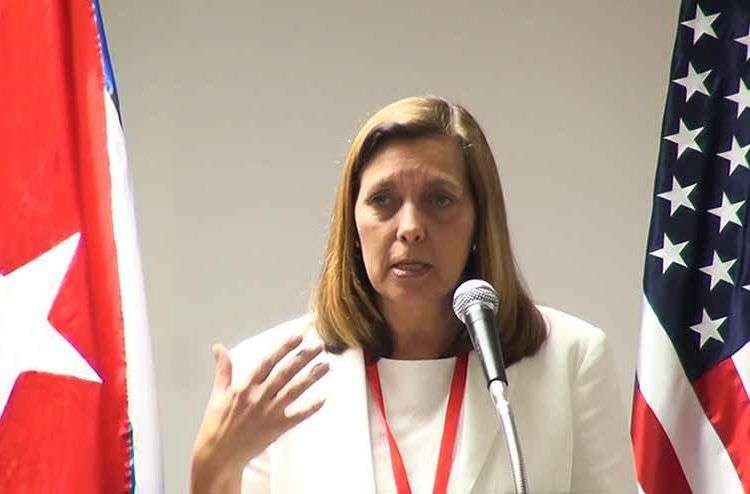“The US president has a chance, I’d say unlimited, to empty the blockade of its substance.” Josefina Vidal said so in an interview broadcast on Cuban television in prime time.
The Director General of the United States Division of the Cuban Foreign Ministry responded for more than forty minutes questions about the blockade and future relations with the northern country. The diplomat took the opportunity to reiterate a thesis: Barack Obama can do more.
“There are only a limited number of issues that the President cannot change because they are prohibited by law” Vidal said, recalling that a post-coding of the blockade paragraph does not deprive the tenant of the White House of his executive prerogatives.
She said that Obama “may authorize, through licensing or the Treasury Department or the Department of Commerce, all other transactions, including trade, services, transportation.”
Vidal gave examples of other initiatives that could be taken from the White House as allowing the use by Cuba of the US dollar in international financial transactions or authorizing the purchase of products with more than ten percent of US components.
“It could allow an American company tomorrow to trade with Cuba, trades in both directions, exporting and importing” Vidal said, recalling that Congress still restricts tourism or lending for the purchase of agricultural products.
He said that there will be no concessions from Havana. “There is a larger group of policies and measures have to change from the US side than from Cuba´s.”
Regarding the demands on issues like democracy and human rights, the diplomat reiterated the position expressed by Cuban President Raul Castro at a regional summit. “The issues of internal order in Cuba are not negotiable, as they are non-negotiable for any other country.”
The Obama administration unveiled mid-January that it will maintain its current immigration policy toward Cuba. According to Vidal, “there is executive power, in the executive branch of the US government to apply the Cuban Adjustment Act as it says on discretionary and not automatic way”
If Obama followed this advice, illegal migrants from Cuba would stop instantly receiving the benefits of the “dry foot, wet foot” policy and could be deported back to their country, like the rest of the undocumented immigrants caught by US authorities.
As the leading spokesman for her country in negotiations with Washington, she remained cautious about the future of reconciliation. “I cannot say I am totally optimistic, because there are things that are out of my control (…) but I cannot say I’m pessimistic, otherwise we would not have reached the point where we are.”










